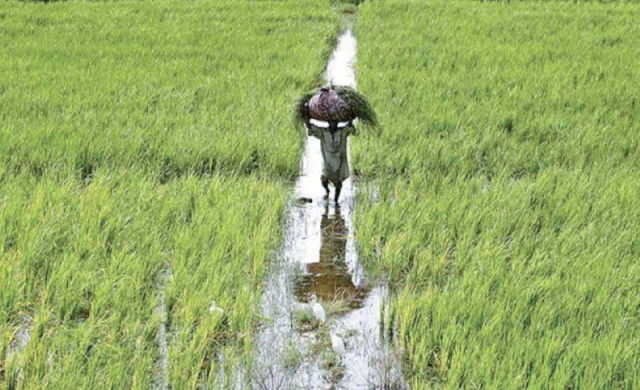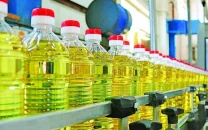AI experts eye agriculture sector
Emphasise urgency of executing AI promptly as most significant step in sector

The latest technological boom, Artificial Intelligence (AI), can revolutionise and revitalise the local agriculture sector, especially horticulture, while addressing the challenges of climate change, adapting crop patterns, attracting talent, and envisioning a positive impact on this sector, according to AI experts.
Tech mavens well-versed in AI assert the need to harness technology for revolutionising traditional practices and driving transformative initiatives in agriculture. They emphasise the urgency of executing AI promptly as the most significant step in the agriculture sector. They point out that people often spend excessive time in meetings, discussions, and visualisations, delaying the execution of pragmatic approaches. They stress the importance of initiating and executing even smaller tasks, transforming them into more significant projects over time.
They highlight that both developed and developing countries are moving towards the digital revolution, recognising data as today’s equivalent of gold.
“AI can help analyse historical data, weather trends, and storage conditions to predict optimal harvest times and storage durations for crops. AI-controlled storage facilities can be fine-tuned to maintain ideal humidity and temperature levels, significantly extending the freshness and shelf life of fruits and vegetables (F&V), resulting in an improved return on investments (ROI) for farmers with minimal resource use,” said General Manager of Syngenta Pakistan, Zeeshan Baig while talking to The Express Tribune.
Baig emphasised AI’s pivotal role in precision irrigation, where sensors, weather data, and soil monitoring are integrated. For example, AI can analyse real-time data to determine the precise water requirements of crops, enabling automated systems to regulate irrigation. This ensures that crops receive the exact amount of water needed, leading to maximised crop yields and water conservation.
Anzar Khaliq, Associate Dean of Teaching and Learning at Habib University, said that deploying AI in agriculture is far better due to various aspects. He notes that farmers face challenges with changing weather patterns, and predicting these patterns can simplify the production of better crops. Khaliq points out the multitude of sensors gathering data, helping growers understand soil moisture, fertility, sunlight, air quality, and water requirements. This information empowers farmers to make informed choices, impacting higher yields per hectare or acre.
Read: Governments race to regulate AI tools
“The potential produce is many more million tonnes of food than what we are currently producing. To adopt this latest technology, we need to figure out how to connect farmers with AI. Local growers, often not well-educated, can use technology through mobile phones. It’s essential to bridge this gap, and if the government takes more interest, this divide can be overcome,” says Khaliq.
He acknowledged that the government has been somewhat slow to respond to changes in this growing field of AI. However, he expresses optimism, noting the potential in both the tech and startup economy for agriculture and farming, with capable and eager leadership in the current government.
Saquib Ahmad, Managing Director of SAP Pakistan, Iraq, and Afghanistan, emphasised two aspects of AI—the technology itself and the user or mind behind it. He stressed the need for training and explaining the use of AI to people, considering it a treasure trove of information and knowledge. Ahmad also advocates illustrating AI among farmer communities, educating them on its use and extracting the right information to enhance local agriculture through continuously updated AI tools.
He added that AI can optimise costs, increase efficiency, and ramp up productivity in terms of selecting the right seeds as per the local environment, using fewer fertilisers with better results, and examining soil fertility and rainfall cycles.
“It is a tall order for people to adopt new methodologies on the spur of the moment, especially when quitting centuries-old agricultural practices. Our population is not well-educated, so it will take some time to understand it. Then AI will prevail,” says Ahmad. Numerous AI tools and applications available on various websites offer a range of services, including image-based problem diagnosis, e-commerce, weather information, agriculture environment analysis, and more.
Published in The Express Tribune, December 12th, 2023.
Like Business on Facebook, follow @TribuneBiz on Twitter to stay informed and join in the conversation.



















COMMENTS
Comments are moderated and generally will be posted if they are on-topic and not abusive.
For more information, please see our Comments FAQ